Top 10 Things to Know When Moving to France from the US
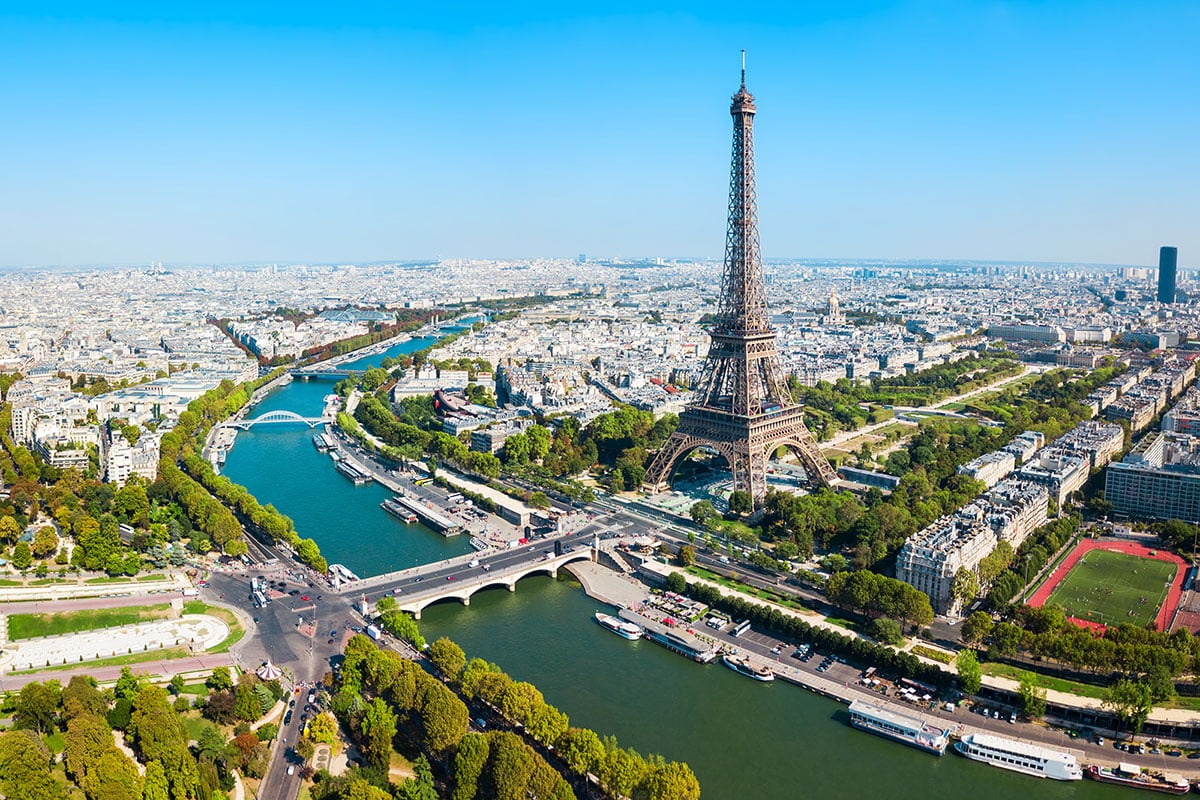
Are you dreaming of moving to France and experiencing the charm of French culture, cuisine, and lifestyle? Moving to France involves careful planning and understanding the ins and outs of your new home. If you’re a US citizen considering a move to France, here are the top 10 things you need to know:
1. Visa and Residency
Before moving, familiarize yourself with the visa requirements for US citizens moving to France. When moving to France, you should consider a long-stay visa or a residence permit. A long-stay visa is for a visit between 90 days and one year. For anything over one year, you will need a residence permit. Learn more about France Visa requirements and applications at https://france-visas.gouv.fr/en/web/france-visas/home.
2. Healthcare System
France boasts a renowned healthcare system, but you’ll need to understand how to access healthcare services as an expatriate. You must have health insurance if you plan to live in France for three months or more. Expats must register with the Sécurité Sociale and often take out supplementary private health insurance (mutuelle) to cover additional costs.
3. Language and Culture
While many people speak English in urban areas, learning French will significantly enhance your experience and integration into French society. Take French language classes and immerse yourself in France’s rich culture and traditions. Practice speaking French daily, even if it’s just basic conversations. Language exchange meetups can be very helpful.
4. Housing and Property
Understanding the French real estate market is crucial whether you’re renting or buying. Seek local advice on neighborhoods, lease agreements, and property ownership regulations. You can find properties for rent and sale on websites like https://immobilier.lefigaro.fr/ before moving. In cities, apartments are more common than houses. Housing can be smaller than you are used to in the US. The rental process can be bureaucratic. Be prepared to provide extensive documentation, including proof of income and a guarantor, if you don’t have a French employment contract. Many rental properties do not include appliances, so you may need to purchase or rent them separately.
5. Transportation
France has an efficient public transportation network, making getting around without a car convenient. Familiarize yourself with your new city’s train, bus, and metro systems. If you want to drive your car in France, you will want to use a reliable moving service like Schumacher Cargo to transport your vehicle to France. You may be able to use an international driver’s license while driving in France, but you will eventually need to obtain a French driver’s license.
6. Banking and Finances
Some of the central banks in France are BNP Paribas, Société Générale, Crédit Agricole, and international banks like HSBC and BNP Paribas. Do research to find out which bank is right for you. Opening a bank account in France is essential for managing your finances. Current accounts (compte courant) for everyday banking and savings accounts (compte d’épargne) for savings. The Euro (€) is the official currency. Keep an eye on exchange rates for the best deal when transferring money.
7. Education and Schools
Consider a bilingual or international school if your child still needs to become fluent in French. Be prepared for cultural differences in teaching styles, discipline, and parental involvement. Understand your area’s options for public, private, and international schools.
Type of Schools in France:
- Public Schools: Free and open to all residents. The curriculum is standardized across the country.
- Private Schools: Can be secular or religious (often Catholic). They may offer a different approach but must follow the national curriculum.
- International Schools: Offer international curricula, such as the International Baccalaureate (IB) or the British curriculum. These are ideal for expats who may move frequently.
- Bilingual Schools: Offer education in French and another language, which can benefit non-French-speaking children.
8. Work and Business
If you’re relocating for work, research and follow French business etiquette. The French value time off. The 35-hour workweek is standard, and taking long lunch breaks and frequent vacations (especially in August) is expected. If you want to work in France as a digital nomad or offer freelance services as a contractor, getting a Profession Liberale Visa will allow you to work as a self-employed person. This visa is valid for one year and can be renewed. No matter what you do for work in France, you must understand your employment rights and obligations.
9. Legal and Administrative Matters
French bureaucracy can be complex and slow. Be prepared to fill out paperwork and wait in lines. Patience and persistence are essential when dealing with administrative matters in France. Keep copies of all documents and follow up regularly. Seek guidance on tax requirements, residency documentation, and other bureaucratic processes. Consulting with financial advisors familiar with US and French systems can help smooth the transition.
10. Embracing the Lifestyle
Finally, embrace the renowned French lifestyle of leisurely dining, appreciating the arts, and savoring the simple joys of everyday life. Allow yourself to adapt to the slower pace and cultural nuances of France. Keep an open mind and a positive attitude. Engage with expat communities online and offline. They can provide valuable advice and support. While adapting to a new culture, staying connected with your roots is also helpful. Maintain relationships with family and friends back home.
Living in France
Understand that cultural adaptation takes time. Be patient with yourself and others as you navigate this new culture.
Here are some bonus tips about life in France.
- Greetings: When entering shops or meeting people, always greet with “Bonjour” (Good morning) or “Bonsoir” (Good evening). Use “Madame” or “Monsieur” for politeness.
- Politeness: Say “Merci” (Thank you), “S’il vous plaît” (Please), and “Excusez-moi” (Excuse me) frequently.
- Formality: French society can be more formal than American society. Use the formal “vous” instead of the informal “tu” until invited to do otherwise.
- Dining Etiquette: The French take meal times seriously. Meals are social events. Lunch and dinner can be long, and it’s common to have multiple courses. Respect the dining etiquette, such as keeping hands on the table (not in your lap) and not rushing through meals. It’s essential to wait until the host starts eating before you do.
- Punctuality: Being on time is vital in professional settings, but social gatherings may be more relaxed.
- Dress the Part: French people generally dress more formally than Americans. Paying attention to your attire can help you blend in.
- Lunch and Dinner: Lunch usually lasts from 12 PM to 2 PM, and dinner is around 7 PM to 9 PM. Adjusting to these meal times can help you adapt socially.
- Local Markets: Shopping at local markets for fresh produce is a common practice. It’s a cultural experience and often offers better quality than supermarkets.
- Appreciation for Arts and Leisure: The French strongly appreciate arts, culture, and leisure. Take advantage of museums, galleries, and cultural events.
- Importance of Family and Community: Family and social connections are highly valued. Building relationships with your new French neighbors and participating in community events and activities can enhance your experience.
By understanding these essential aspects of relocating to France, you can ensure a smooth transition and fully enjoy all your new home has to offer. Bon voyage!
If you need assistance with your move to France, our experienced international moving specialists are here to help you every step of the way. We provide options for moving your household items and vehicles overseas, tailored to any size of your home and budget.
Contact us today at 1-800-599-0190 to learn more about our relocation services or get a free quote for your move to Frace.
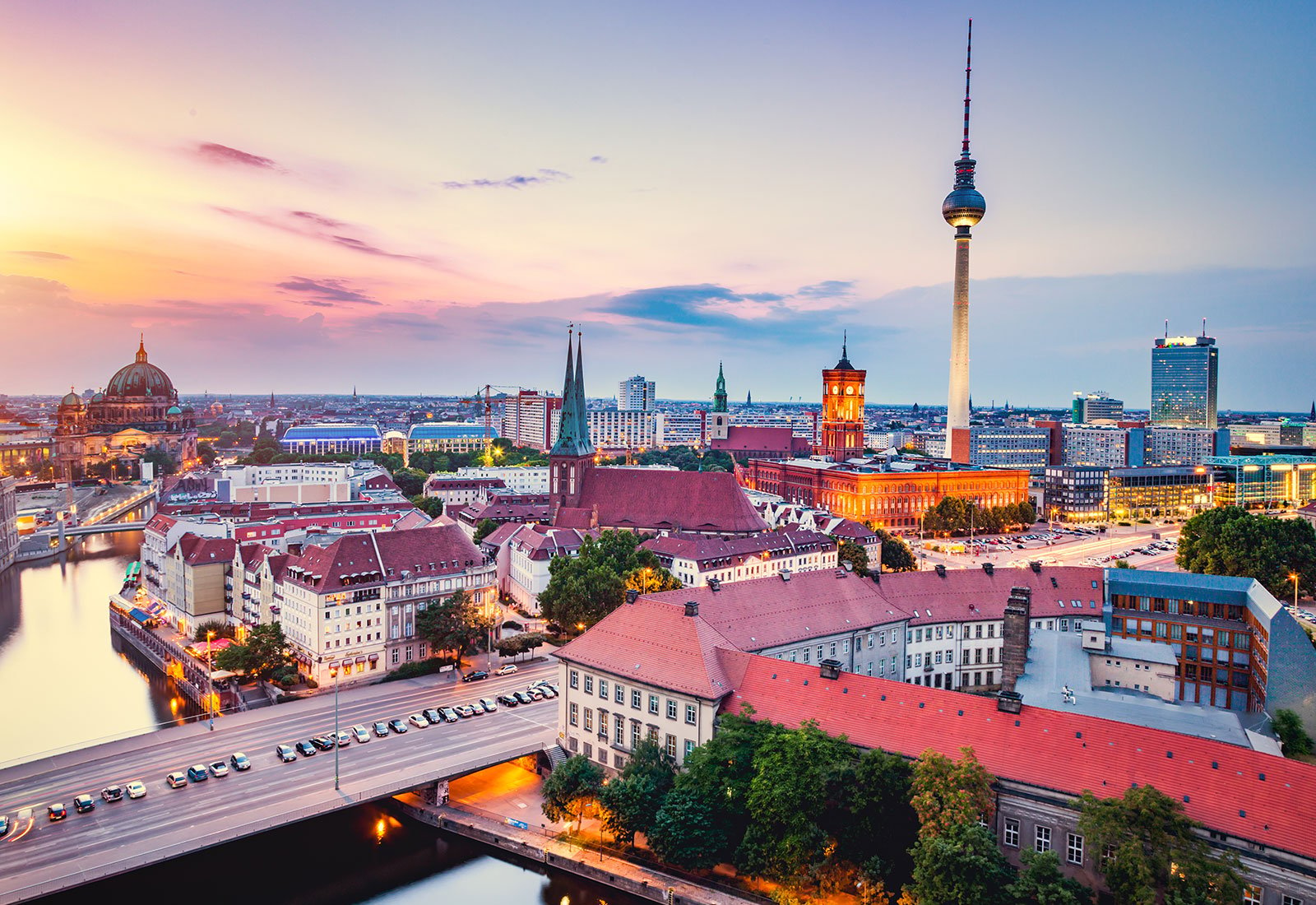
Are you considering a move to Germany? Moving to a new country is a thrilling adventure, whether for a new job, a change of scenery, or pursuing an education. With its rich history, vibrant culture, and robust economy, Germany offers a unique blend of the old and new. Here’s our essential guide for what you need to know to make your relocation to Germany smooth.
Understanding Visas and Residency
First things first: sorting out your legal right to live and work in Germany. Americans can enter Germany visa-free for tourist or business purposes for up to 90 days. However, you must apply for a visa if you plan to stay longer. Germany offers various visas, including employment, job seeker, family reunion visas, and the Blue Card for highly skilled workers. Once you have a visa, you must obtain a residence permit to stay long-term. It’s advisable to consult the German Consulate or Embassy closest to you for the most current requirements and procedures. Start this process well in advance to ensure all paperwork is completed on time.
Navigating the Job Market
Germany’s job market is diverse. The country is known for its engineering, automotive, and manufacturing industries, but there’s also a thriving market for IT professionals, healthcare workers, and researchers, especially in cities like Berlin, Munich, and Hamburg. Speaking German is a significant asset, although many multinational corporations use English as their working language. It’s a good idea to start your job search from the U.S.; platforms like LinkedIn and local German job sites can be helpful.
Learning The German Language
While many Germans speak English, especially in larger cities and within international companies, learning German can significantly ease your daily life and integration. Local language skills are often crucial for job opportunities and social interactions outside work. Two popular options for learning the language while in Germany are the Volkshochschule and the Goethe Institut.
Finding a Place to Live
Housing in Germany varies depending on the location. Larger cities typically have a competitive rental market, so starting your search early is essential. Websites like ImmobilienScout24 and WG-Gesucht can be great resources for finding rental properties. When choosing a place to live, remember to consider how close you will be to public transport, local amenities, and your workplace.
Registering Your Address
Once you’ve found your new home, you must register your address at the local town hall or citizens’ office (Bürgeramt). You must register your address within two weeks of moving into your new residence. This is a requirement for anyone living in Germany. Registering your address will also give you access to your tax ID, the ability to get a bank account, a residence permit, and more.
Healthcare in Germany
Germany boasts one of the world’s best healthcare systems, offering high standards of medical care. Germany requires everyone to have health insurance. Once you are a resident and employed, you will be eligible for either public or private health insurance schemes, depending on your income level.
Cost of Living in Germany
The cost of living in Germany is relatively reasonable, though it can vary significantly between cities. Munich and Frankfurt are among the more expensive, whereas cities like Leipzig and Dortmund are more affordable. Daily essentials are reasonably priced, and efficient public transportation systems reduce the need to own a car.
Choosing the Best Places to Live
Germany offers a wide range of lifestyles depending on the region. For vibrant city life, consider Berlin or Hamburg, which are known for their cultural scenes and modern amenities. If you prefer a more relaxed pace, Bavarian cities like Munich are closer to nature and have a rich historical ambiance. Alternatively, the Rhine-Ruhr region is perfect for those looking for an industrial and commercial hub.
Understanding the Education System
The German education system is highly regarded worldwide, offering various options for the children of expatriates and higher education opportunities. Germany has many international schools, particularly in larger cities, which teach in English and adhere to international curricula. Public universities in Germany charge minimal tuition fees, even for international students, making it attractive for those moving to Germany for higher education.
Additional Tips for Life in Germany
- Public Transport is Excellent: Germany is known for its efficient and extensive public transportation networks. In most cities, a car is not necessary. Which can save you significant money on maintenance, insurance, and fuel.
- Recycling and Waste Disposal: Germany takes recycling seriously. Waste disposal is meticulously organized, with bins for paper, packaging, glass, and residual waste. Learning the system will be essential.
- Cultural Differences: German culture values punctuality, privacy, and directness. It’s not uncommon for people to arrive at meetings early so that the meeting can start right on time. Understanding these cultural norms can help you adjust to your new environment and build strong relationships with locals.
- The Weather: Germany’s climate varies by region, but generally, it has cold winters and mild summers. Depending on where you’re moving from in the US, you might find the German winter quite brisk and gray.
- Quality of Life: Germany consistently ranks highly for quality of life. It offers a strong balance of work and leisure, with excellent healthcare, education, and public services. Additionally, you’ll find rich cultural histories, beautiful landscapes, and a wide array of recreational activities.
Planning Your Move with Schumacher Cargo Logistics
When it’s time to finally make your move, choosing a reliable international moving company can make all the difference. Schumacher Cargo Logistics specializes in moving to Germany, providing services that can help you transport your belongings safely and efficiently from the U.S. to Germany. We offer a range of options, from full container shipping to less-than-container loads, ensuring your move is as stress-free as possible. Get a Free Moving Quote.
Moving to Germany can be a fantastic opportunity, but it comes with challenges. By planning ahead, educating yourself about the local way of life, and getting the right help, you can make your transition a smooth and enjoyable journey. Willkommen in Deutschland – Welcome to Germany!
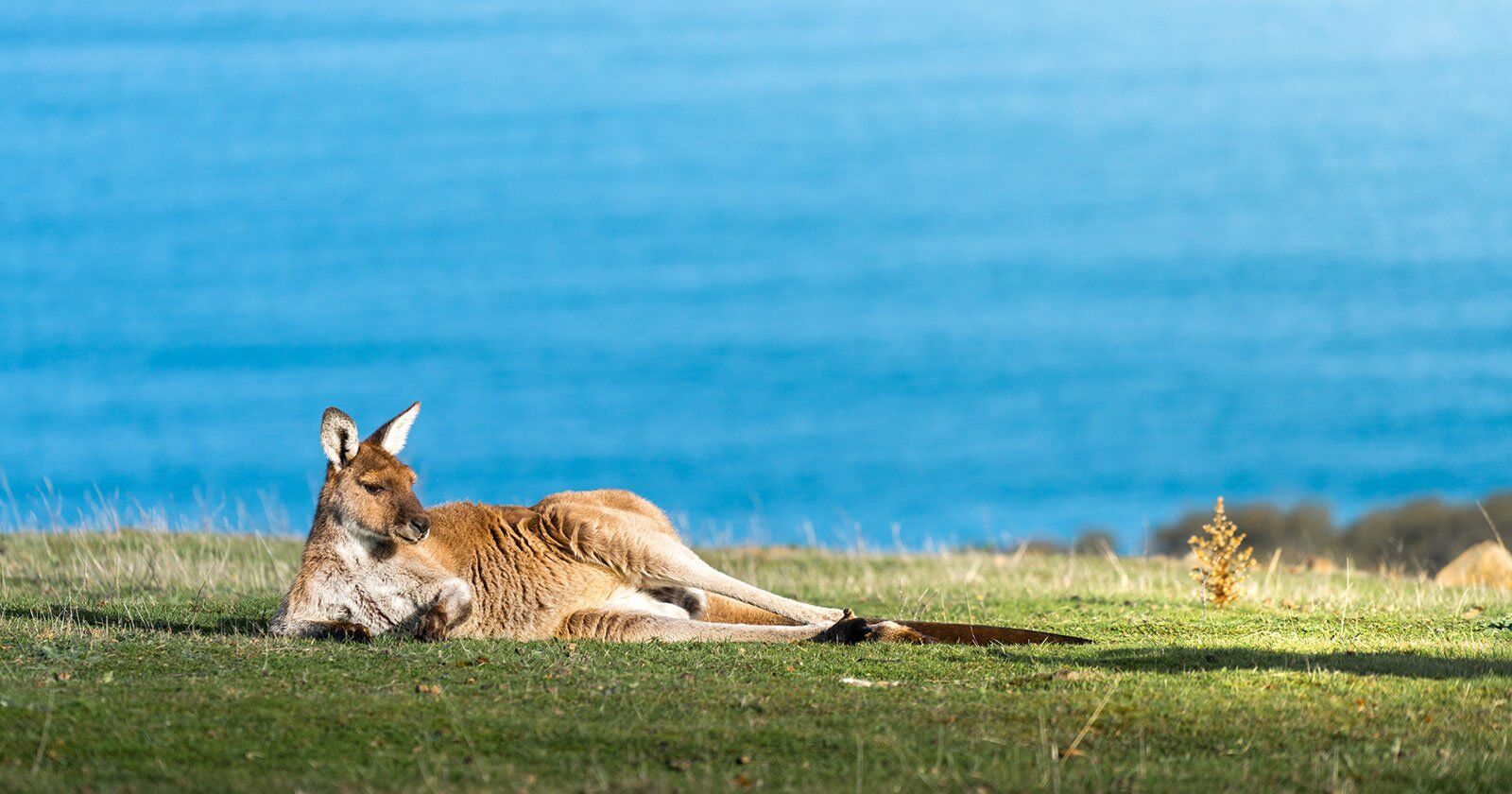
Americans want to move to Australia for its high quality of life, stunning natural landscapes, and friendly, laid-back culture. Diverse and vibrant cities and beautiful outdoor environments ranging from pristine beaches to rugged bushlands offer a setting for adventure and tranquility. Moving to any country from the US will take you some time to adjust. We’ve made this list of the top 5 cultural differences for Americans to know before moving to Australia to give you a head start on adjusting to your new home.
1. Laid Back Lifestyle
The first thing you might notice, which may also be one of the reasons you were drawn to Australia in the first place, is the laid-back lifestyle. Australians generally have a more laid-back attitude than Americans, especially when it comes to work-life balance. The Australian approach is often more about enjoying life and less about working excessively. Be prepared for more emphasis on a work-life balance and a more relaxed atmosphere at work with less of a push for overtime. One of the things that keeps Australia at the top of work-life balance rankings is the 32.4 average hours worked per week. The maximum you can work before overtime in Australia is 38 hours per week.
2. Language and Slang
Though both Australia and the US speak English, we all have our own slang, and that can even change based on where you are in the country. Be aware that there will be expressions that you are not used to, and that may cause some confusion at first. Some will be easy to figure out in context, but not all. One slang term you will probably encounter pretty quickly is “Arvo”, meaning afternoon, not to be confused with “Avo” for avocado and brekky for breakfast. There are obviously many more, so it’s a good idea to research common Australian expressions and slang before you go. Here’s a list of 33 Australian slang phrases from CNN travel to get you started.
3. Sports
Sports are a major part of Australian culture, similar to the US. Unlike the U.S., where football, basketball, and baseball dominate, Australians are huge fans of cricket, Australian Rules Football (AFL), and rugby. Participation in local sports clubs is also more common. Engaging in popular Australian sports like cricket, AFL (Australian Football League), or surfing can be a great way to meet people and integrate into the community. Watching these sports can help you strike up conversations and understand local passions.
4. Coffee Culture
Australians take their coffee seriously, and the coffee culture is more like that in Europe than in the U.S. Expect to find a variety of cafes offering high-quality espresso drinks rather than drip coffee. Take the time to explore Australia’s rich coffee scene. Australians pride themselves on their coffee, and joining in on the coffee culture could end up being a pleasant part of your daily routine.
5. Tipping Practices
Tipping is not as common or expected in Australia as it is in the U.S. In Australia, workers tend to be paid a livable wage. The national minimum wage in Australia is $23.23. When eating out, many restaurants have a service charge. This service charge goes to the staff. Tips are considered a bonus for exceptional service rather than a necessity. But don’t be surprised if some refuse to take a tip. Many Australians do not want a tipping culture because it should be up to employers to make sure employees make a livable wage.
Connect with Other Expats and Locals in Australia
When moving to Australia, embrace the local culture. Do a little research about your new home and people before you go. Join some local groups or communities, whether online or in-person, that include both Expats and locals. Get out and participate in community events. Joining groups can provide support and valuable insights as you navigate your new surroundings.
A Land of Rich History & Stunning Landscapes
Ireland’s natural beauty, rich history, and vibrant culture make it an attractive place for US residents wanting to relocate. If you wish to retire or relocate for work, there are many options to fit your lifestyle. From bustling cities to idyllic countryside, there are numerous enticing places to choose from when deciding where to settle down. Let’s look at some of the best places to live in Ireland for expats.
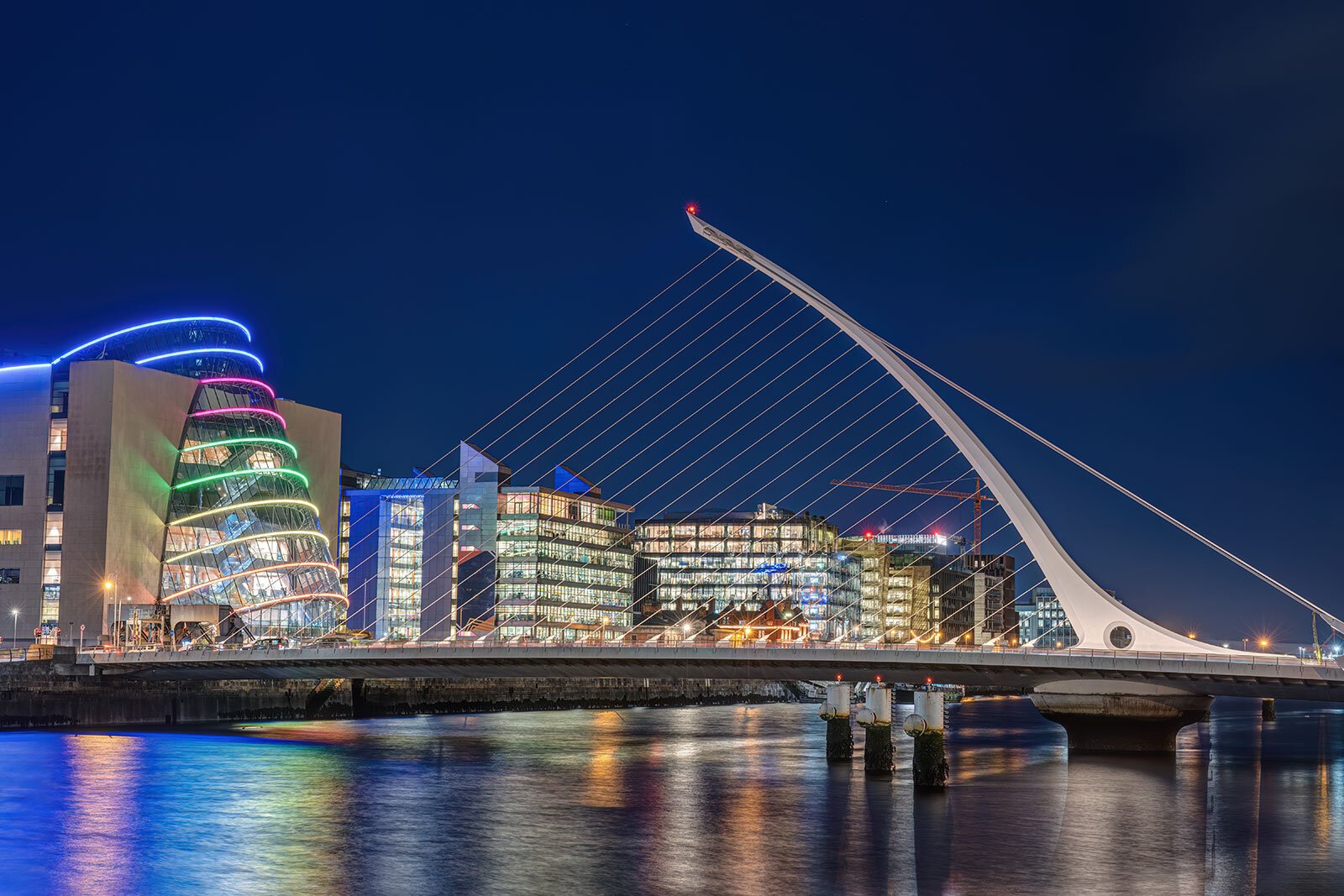
Dublin: The Vibrant Heart of Ireland
As the capital city, Dublin is a popular choice for expats seeking a bustling metropolitan lifestyle. With its vibrant nightlife, world-class restaurants, and thriving arts scene, Dublin offers various activities to suit every taste. The city is home to many international businesses. Accenture and Medtronic, located in Dublin, are two of the largest companies in Ireland, according to the Forbes Global 2000 2023 list. Dublin is an attractive destination for professionals seeking career opportunities. Whether you prefer the city center or the surrounding suburbs, Dublin has something for everyone.
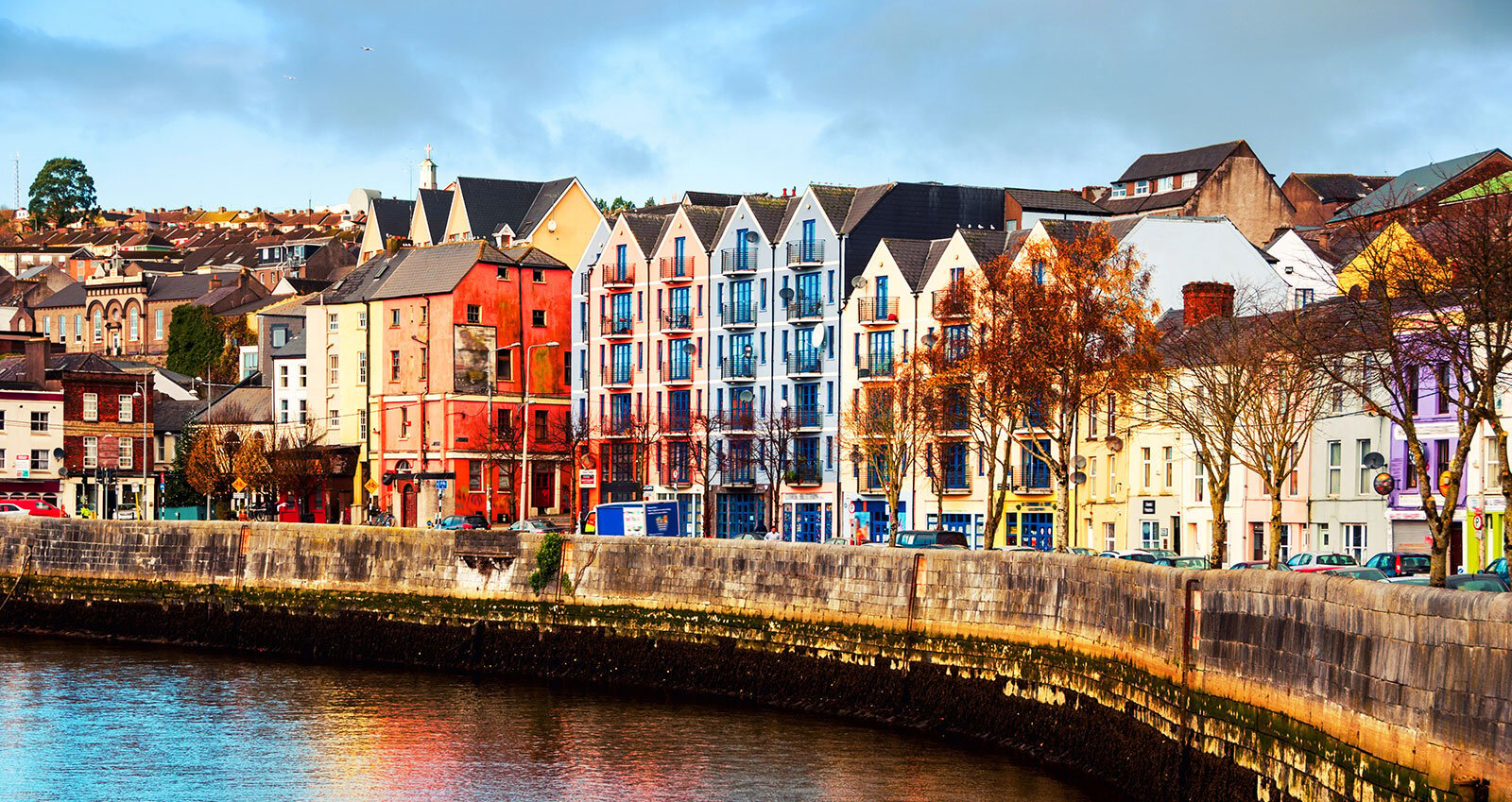
Cork: A Charming City with a Relaxed Vibe
Located on Ireland’s southern coast, Cork is a charming city known for its friendly locals and laid-back atmosphere. Cork is a haven for foodies and culture enthusiasts. It is well known for its food and drink scene, most notably the famous English Market, and many festivals and events throughout the year. Cork may be the perfect place if you prefer to live in a smaller city with a relaxed vibe.
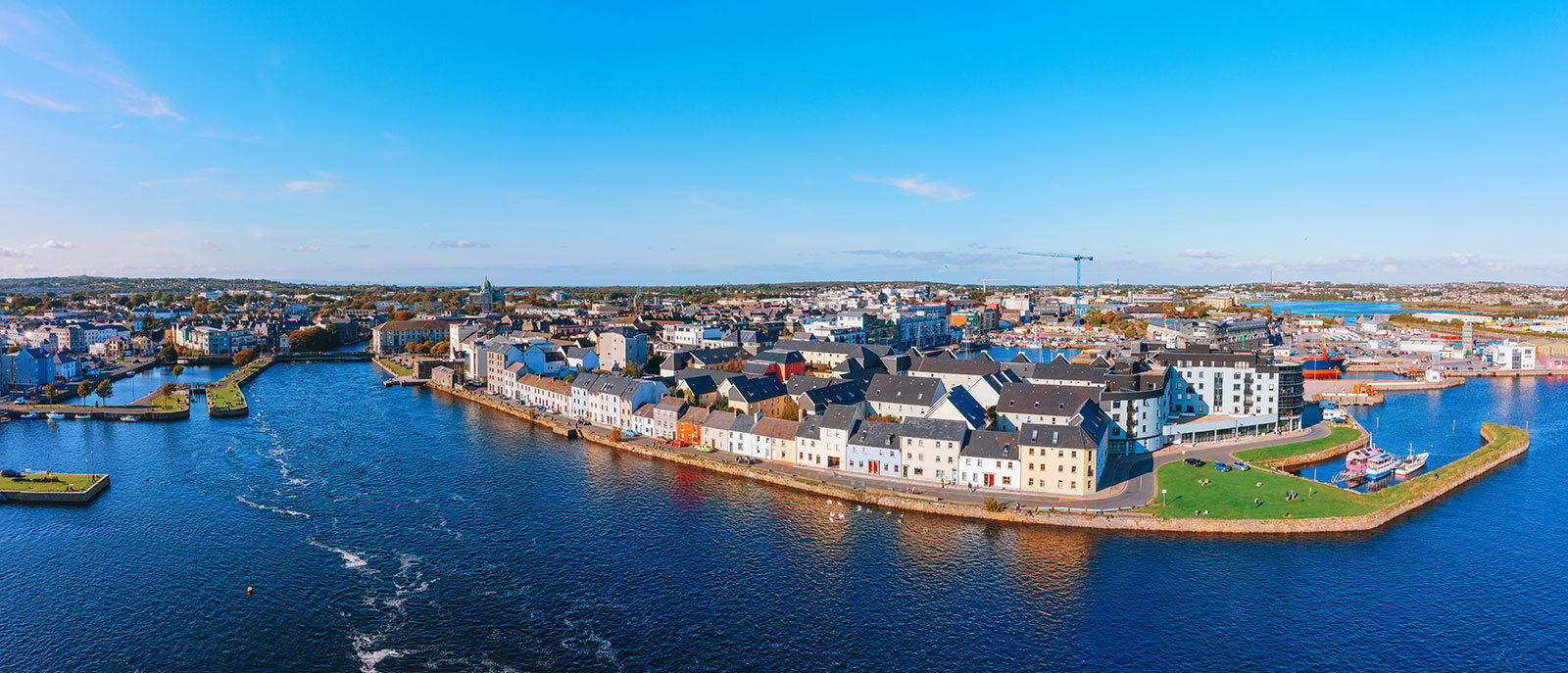
Galway: Where Tradition Meets Creativity
Along Ireland’s picturesque west coast, Galway is a vibrant city that combines rich traditions with a thriving creative scene. Often considered the cultural heart of Ireland, Galway offers a lively atmosphere and colorful festivals, including the famous Galway International Arts Festival. It is known for its vibrant music and arts scene. The city’s charming streets are full of traditional pubs, quaint shops, and delightful restaurants serving mouthwatering seafood. Galway is an excellent choice if you’re seeking a city that embraces tradition and creativity.
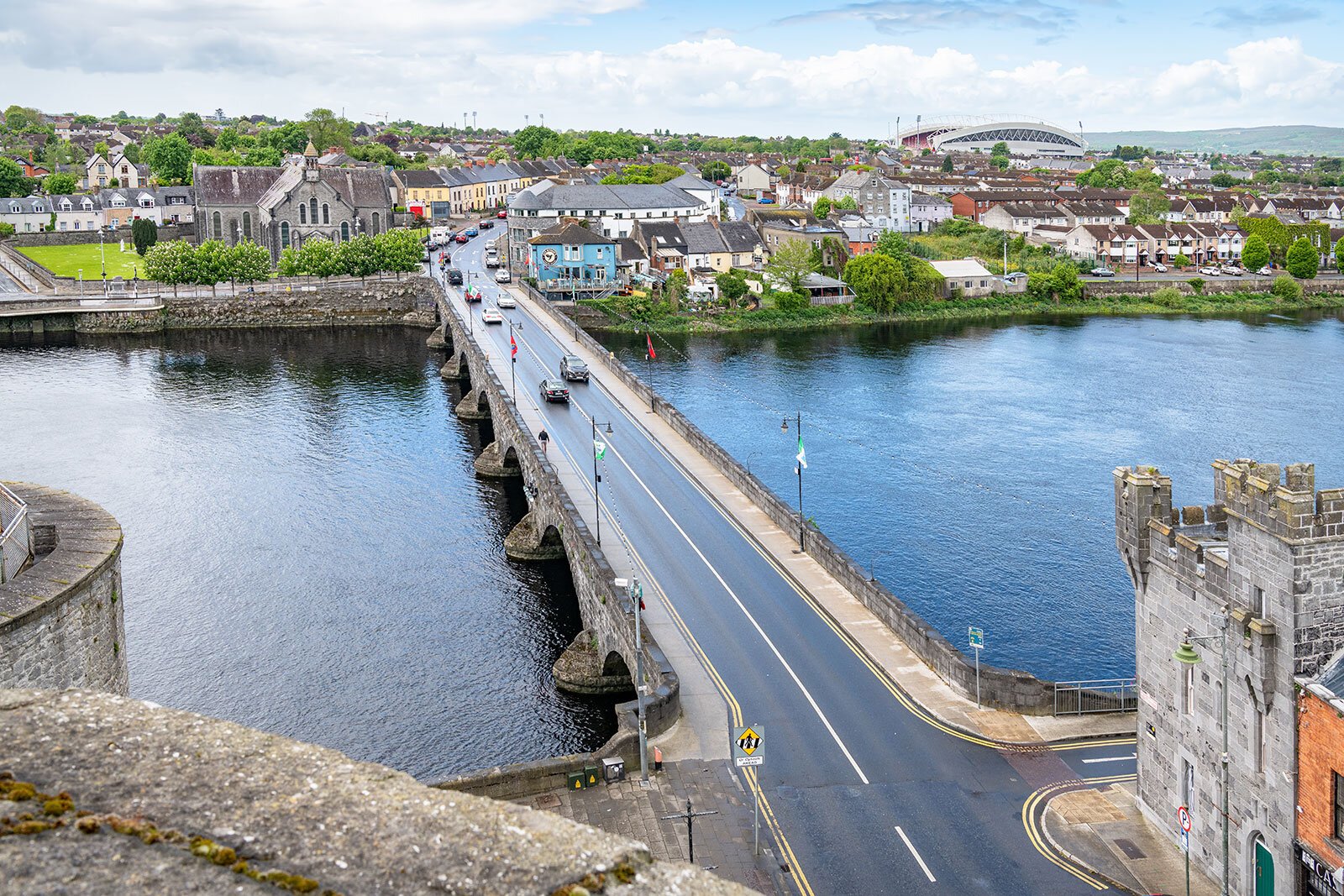
Limerick: A City of History and Heritage
Situated on the banks of the River Shannon, Limerick is a city steeped in history and renowned for its warm hospitality. Limerick offers a unique blend of ancient castles, most notably King John’s Castle, stunning riverside walks, and modern amenities. Limerick has a thriving arts scene with numerous galleries, museums, and theaters. It also boasts a vibrant food culture, with various restaurants serving traditional Irish dishes and international cuisine. Limerick is worth considering if you’re looking for a city that embraces its heritage while offering modern comforts.
Your Irish Adventure Awaits!
Moving to Ireland from the US is an exciting and life-changing experience. Whether you choose the vibrant city life of Dublin, the relaxed charm of Cork, the creative energy of Galway, or the historical heritage of Limerick, Ireland has something for everyone.
At Schumacher Cargo, we understand the challenges of international relocation. We are here to assist you every step of the way. Our experienced team of Ireland moving specialists will ensure that your belongings arrive safely, and you can focus on settling into your new home and embracing all that Ireland has to offer.
So what are you waiting for? Start planning your Irish adventure today, and let us help you make the transition as smooth as possible. Contact us now at 1-800-599-0190 or get a free moving quote to get started on your journey to the best places to live in Ireland for expats!
Disclaimer: This blog post provides general information on popular destinations for expats relocating to Ireland. Please consult with Ireland’s immigration authorities and do thorough research before making any relocation decisions.
Living in Milan is an experience like no other, offering a unique lifestyle that caters to various interests and passions. Milan, often referred to as the fashion capital of the world, is a city that seamlessly blends history, culture, and modernity. Whether you’re planning to move to Milan or just curious about life in this iconic city, this comprehensive guide will walk you through everything you need to know.
Get ready to embark on a journey through Milan, exploring its vibrant neighborhoods, cultural gems, culinary delights, and much more.
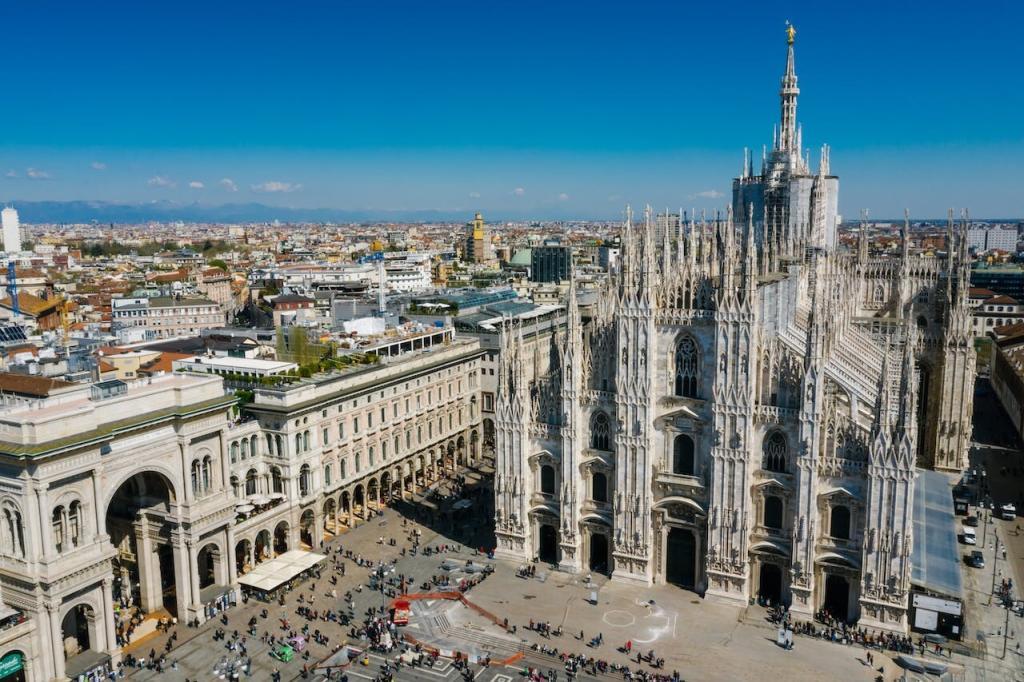
Living in Milan
Milan’s Unique Charm
Living in Milan is an exhilarating experience. The city exudes a unique charm with its stylish residents, historic architecture, and a passion for innovation. Many expats that move here say there is no place in the world like it. This blend of tradition and modernity creates a dynamic environment that appeals to a diverse range of people from expats to native Italians alike. Milan’s growing cultural importance brings many expats here for both work and pleasure, which makes it a very appealing destination for staying a long period of time.
Popular Neighborhoods in Milan
When living in Milan, there are many different distinct areas you may want to consider. Depending on your preferences, you are sure to find something that fits your desired lifestyle. Here are a few of the most famous places that people choose to live when moving here.
Brera
Brera is a picturesque, bohemian neighborhood known for its artistic ambiance. This district is home to numerous galleries, boutiques, and some of the best cafes in the city. It is both popular to expats and locals alike, making it a great place to be able to experience new culture while being easy to fall back on old styles.
Navigli
If you love a lively atmosphere, Navigli is perfect. It’s famous for its canals, vibrant nightlife, and a plethora of restaurants serving authentic Italian cuisine. This has become a very trendy place to live and popular amongst the younger people who want to live in Milan.
Porta Nuova
Porta Nuova has become one of the most popular areas to live in, especially for expats. This area has high-rises, great transportation, and many of the city’s biggest businesses. It is more akin to city life you may know from the states, with many modern amenities you’ve come to expect with city life.
There are many other amazing places to live in Milan, but those three are regarded as some of the most popular to live in.
Cost of Living in Milan as an America
One of the most popular questions for expats is “What is the Cost to Live in Milan?” Unfortunately, the answer to this can vary from person and it gets even more complicated for expats. Though there are some expenses that will be the same for citizens or expats. For example, a 1 Bedroom you can expect around 1000-2000 Euros a month which is around +/- 10% with the US dollar. Generally, many expats have told us the cost of living in Milan is around the same as most major American cities.
Exploring Milan’s Culture
Art and Museums
Pinacoteca di Brera: This renowned art gallery houses an impressive collection of Italian art, including works by Caravaggio and Raphael. It is the major museum in Milan and considered one of the best museums in the world.
Visit Pinacoteca di Brera
The Last Supper: This masterpiece by Leonardo da Vinci can be found in the Convent of Santa Maria delle Grazie. Make sure to book your tickets well in advance. The convent isn’t really a museum as there is only the single defining work that brings people in. Though there are other historic and beautiful pieces to see there.
Visit Santa Maria delle Grazie
Music and Opera
Milan is synonymous with opera. Don’t miss the chance to attend a performance at the famous La Scala, one of the most prestigious opera houses in the world. Founded in 1778, the opera house is almost as old as America!
Visit Teatro La Scala
Culinary Delights
Risotto alla Milanese: Savor the city’s signature dish, a creamy saffron-infused risotto. Its simplicity is deceiving as there is a plethora of flavors while seemingly few ingredients.
Aperitivo: Experience the Italian tradition of aperitivo, where you enjoy drinks and appetizers at local bars. Starting with a traditional spritz or negroni, the aperitivo helps people relax after work and start unwinding. For an expat living in Milan, aperitivo is much like a happy hour in the states.
Lifestyle and Entertainment of Milan
Fashion Capital
One of the things Milan is most known for is its importance in the fashion world. Some call it the fashion capital of the world with many shows that bring pros from all over the world. Take a stroll through the Quadrilatero della Moda, the city’s fashion district, where you can shop for luxury brands and the latest trends. The Milan fashion week takes place in late February, so look out for this if you’re interested.
Sports
If you’re a football enthusiast, attending an AC Milan or Inter Milan match at San Siro Stadium (Stadio Giuseppe Meazza) is a must. Milanese residents are passionate about their football. The San Siro can fit 80,000 people and has tours of the facilities and a museum with historic memorabilia.
Conclusion
Living in Milan as an expat is an experience that blends rich history, modernity, and cultural diversity compared to your times in the USA. This bustling metropolis offers a unique way of life that caters to various interests and passions. Whether you’re attracted to art, fashion, or simply the joy of living in a vibrant city, Milan has something to offer everyone. Embrace the Milanese lifestyle and enjoy the enchanting journey in the heart of Italy’s fashion and cultural capital.
Remember, Milan isn’t just a city; it’s a lifestyle.
We also have a page dedicated to Moving to Milan if you would like to get started or fill out our quote form at the top of the page. If you are interested in moving anywhere else in Italy, take a look at our Moving to Italy Guide.









